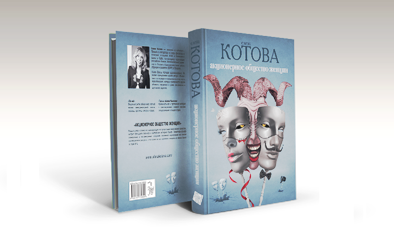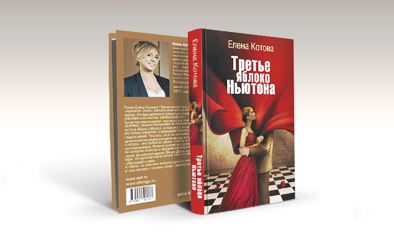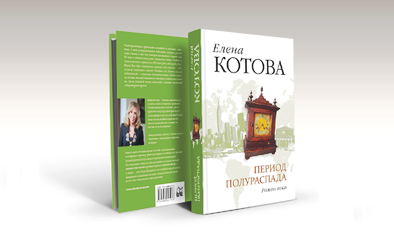02.12.2012. sobakajs (livejournal)
Women’s Corporation – a novel, which is quite realisitic, not to say, down-to-earth, and phantasmagoric at the same time. Extremely serious, one can call it “art-house” but extremely funny, even wild. Yes. Wild. Someone would call it obscene, but I am impressed how the author pulls down the masks and removes taboos from many themes prohibited for discussion. How the women get insane from fear to loose their attractiveness of the youth, and get involved in all idiotic adventures with plastic surgeries, liposuctions, paying for young boys. How the men are unhappy with their “wives of the first wave” – one has become a laborholic, the other doesn’t want to have sex anymore, the third one nags her husband 24/7, the fourth has drinking problems unable to keep herself busy. How the young girls, lovers of those men, become only too soon exactly like the wives, although the men obtained these girls formostly in order to escape from the tyranny of the wives. The author revealed – skillfully, sharp, like a snake – many human vices. She did not spare either the biblical themes and explained that God encouraged prohibition of cognition, while the Devil – he pushed the people, women in the first place, towards passion, search and doubts. But the plot is something unthinkable. The talented women, after spending half of their lives in gossiping about the unfairness of the world, which is organized according to men’s rules, have created an insurance society “Beyond the Fringe”. Just read the Charter, it’s worth it! The women of 18-45 pays premiums from the dough, which (quote) “each normal woman receive from men”. Once she goes over “The Fringe”, in other words at menopause – the receive the insurance (a hefty one) and are free to spend it either to continue the “games of the youth”, or to develop their own shareholding society, if by that age they’ve understood that that true power of women is irresistible regardless of the age, and a woman ought only not to allow the society to deprive her of this power, and the society had been doing ever before. Here you’d find the Old Testament, Faust, Dante, Milton, Aristotle, – all of them had contributed to canonization of the men’s superiority. The most frightening is that the women had not only accepted this, but oddly started to believe that this is even convenient… So, using this resource – even scary to say out loud – the women’s menopause the women create a huge corporation. Here start the men’s resistance, their mean competition, the resistance of the “power”, which attempt to encourage the men’s upheaval, and all of the above get mixed into such a deliciously intellectual and hilarious carnival that the “Fringes” – of the reality, of the serious and of buffoonery, of the truth of life and of phantasmagorical – one can hardly see them anymore. Impossible to resist the novel. I strongly recommend.









